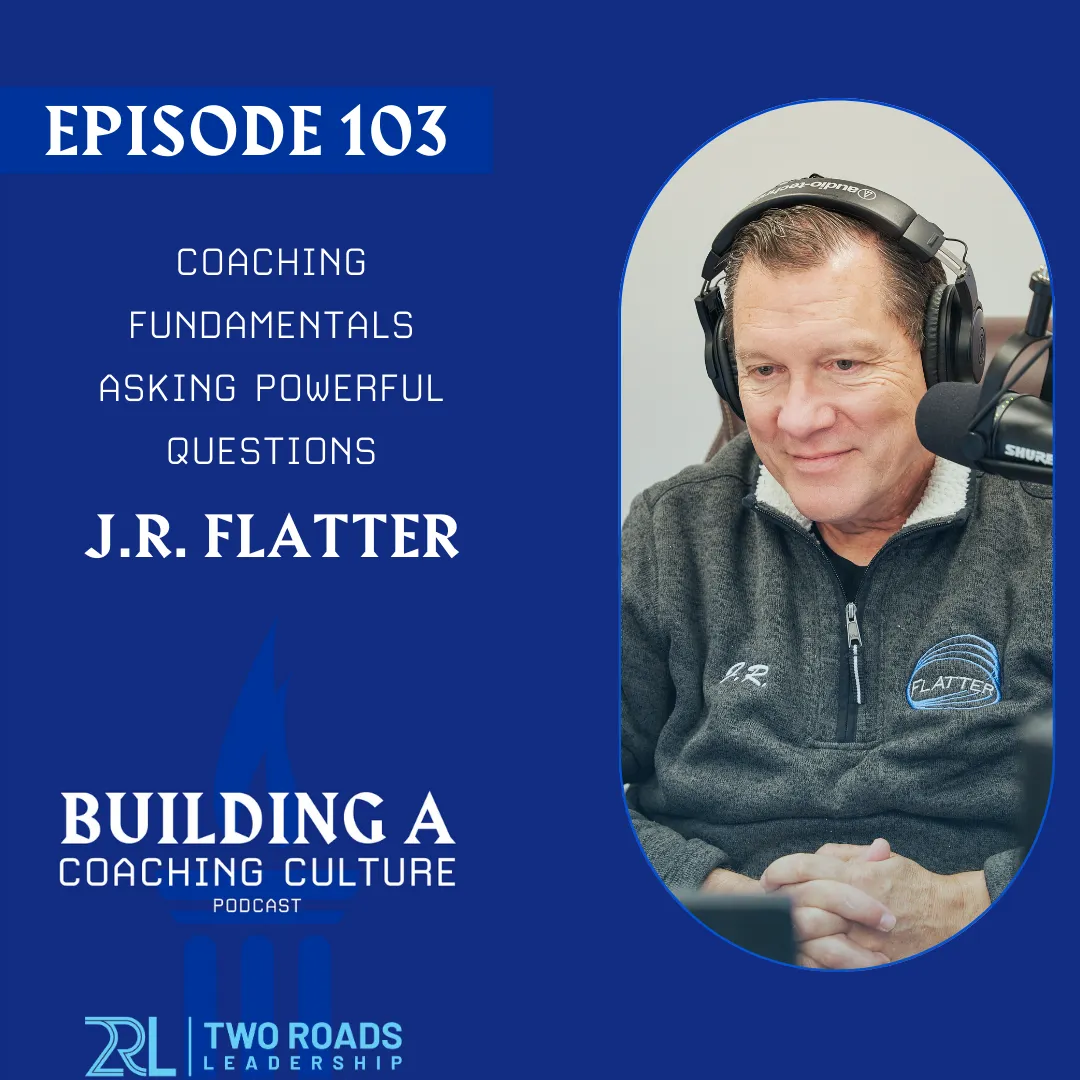In today's episode, our podcast hosts J.R. and Lucas Flatter dive into the art of asking powerful questions. They discuss critical guidelines for formulating open-ended, non-judgmental questions that empower the leader, including starting with a "blank slate," avoiding "why" questions, asking just one question at a time, and letting silence do some of the work.
Key topics covered include:
- The Fundamentals of Coaching
- Why is it important to ask powerful questions during coaching sessions?
- What are the techniques for asking powerful questions?
- The session structure and management
Listeners will gain valuable insights on the skillful art of coaching through questioning and how to create impactful coaching conversations.
Building a Coaching Culture is presented by Two Roads Leadership
Produced, edited, and published by Make More Media
Episode Links
J.R. Flatter
Founder of Two Roads Leadership
Lucas Flatter
Resources
2RL 4 day Coach Certification Bootcamp
2RL ICF-Approved Coach Certifications and Trainings
Transcript
Automatic Transcription - please excuse any errors

